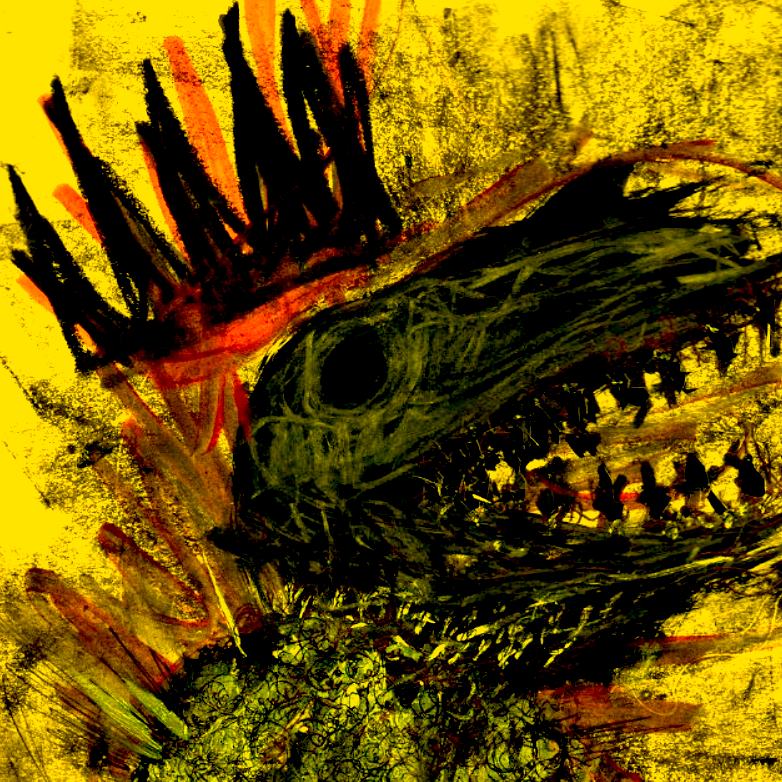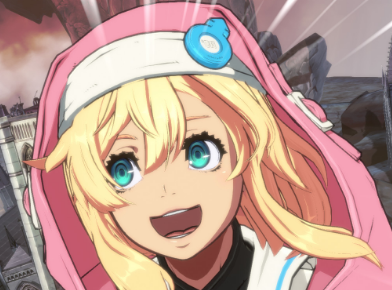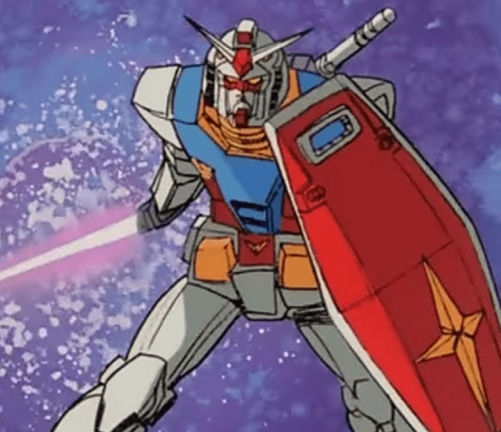Maybe it's about a system, a specific mechanic, lore, builds, types of players, ttrpg-adjacent products - whatever they are, share them.
The primary reason you are there is to have mutually positive social interactions. Everything else is subordinate to that purpose. Oh, it's something your character would do? It's necessary for the plot? Someone is excluded from several sessions in a row because you split the party? The rules say this? Yeah, ok, but how can we make it work so that everyone is generally excited to show up for the next session and no one is crying in the next room because someone else stole their imaginary hat.
It was so funny the first session I ever ran bc we kept doing scenes with like half the party and I was so paranoid someone was gonna feel left out and leave (I have mental health) and so I kept being like "hey you can come into this scene whenever you would like" and my player was just like 'nah I'm having fun listening to them roleplay' which is just incredibly based
Best take on this thread. The whole point of any TTRPG is to have fun doing collaborative story telling with friends. It's not a competition, and it's not a way for you specifically to do an edgy character study. There are other outlets for both those desires.
I think the guiding principle should be that fun and roleplaying shouldn't be at odds with one another. If someone is playing a character whose only purpose is to do things that ruin everyone else's fun, other players (particularly the GM) should take them aside and tell them to make a new character.
Resurrection magic is a mess that most tabletop games outright ignore when it comes to what their material and sociopolitical consequences would be in rules-as-written application.
Death in most settings should be perceived, if resurrection magic really is just a sufficiently leveled cleric and some diamonds away, as a lack of health insurance and nothing more. A punishment for poor people. Sure, typically there's a maximum lifespan limitation, but so much killing and death that happens in a typical D&D setting is basically just untreated yet treatable medical conditions. Funeral services at a typical temple would have a pretty loud subtext of "the deity comfort you in your grief, but if you had more money, you wouldn't be grieving at all."
Show
On top of that, pretty much any slain enemy with money and means that doesn't have extensive preparations made against them to prevent resurrection should basically be as returnable as a typical saturday morning cartoon villain, and pretty much anyone with sufficient means should also be the same way. The fact that so many stories as written sort of ignore that and just have the dead stay dead unless they're player characters is too damn high.
It would cheapen a lot of dramatic moments, but that's the price that having such predictably applicable death-cheating magic should have in a typical setting.
I've got a recurring oneshot villain based around this idea - he's rich as Creosus, so just has a bunch of contingency spells cast on him for being attacked, killed etc. True Ressurection is just a drop in the ocean to him.
Big Team Rocket energy, especially if the returns become a sort of in-setting meme.
DND requires the soul to be willing to return. Most afterlifes would provide a strong incentive to stay dead.
That's an interesting take and one I never thought about before, but very rarely does that reluctance actually come up in play, established settings, or fiction unless it's for a specific individual intrigue moment. Why do dead player characters come back so readily? Are adventurers just adverse to the afterlife? Also, there's a weirder implication: does that mean bad people with some sort of damnation waiting for them are statistically far more likely to return?
Why do dead player characters come back so readily
Probably because they were in the middle of doing something and want to finish.
Bg3 has a neat note about one of the npc characters resenting being resurrected. He was a follower of bhaal and enjoyed the afterlife that seemed like a damnation.
I still don't see many official materials through the decades I've played D&D that suggested that it was that rare for resurrection magic to actually fail that often by way of people not wanting to return.
-
Any RPG game based around fighting opponents (or sneaking around and robbing their "dungeon") and taking their stuff as a reward is inherently and intrinsically colonialist. Recasting the antagonists from orcs to either "bad people" or undead or robots or whatever is just obfuscating the colonialist power relations. This extends to RPG video games as well.
-
Having collaborative world building or ways to grant players authorship is nice in theory, but often most players aren't actually that interested so things fall back to the GM or you end up with a self-appointed co-GM.
-
I think it's okay that game PDFs cost about as much as a print book (~$30 to ~$35) since the majority of the value is in the writing and artwork as opposed to the physical construction of the product. I'm just going to get it on sale anyways.
-
Generic systems like GURPs, FATE, Genesys or Cortex are just toolkits to design your own house system. They shouldn't be recommended to people looking to play a specific genre unless there are literally no decent games for said genre.
-
Trying to play music or have soundtracks, especially for online games, doesn't work and is only distracting.
-
When introducing TTRPGs to people, "rules-light" TTRPGs are less friendly compared to more traditional games since they are more open ended and can more easily confuse players who don't have this experience. On the other hand, D&D 5e is a terrible introduction as well. The are definitely good middle ground options.
-
TTRPG Kickstarters delays are generally okay. People who collect and kickstart games are never going to run most of what they own anyways, so if it comes even a few years late there's little difference.
-
Tables with only male-aligned individuals kinda suck.
-
If you have a group of 3 or more people and you post a LFG for an external GM, unless you plan to pay said GM then one of you should just bite the bullet and take that role. Asking for a stranger to cater to an existing group for free is cringe.
Any RPG game based around fighting opponents (or sneaking around and robbing their "dungeon") and taking their stuff as a reward is inherently and intrinsically colonialist. Recasting the antagonists from orcs to either "bad people" or undead or robots or whatever is just obfuscating the colonialist power relations. This extends to RPG video games as well.
My hand-crafted campaigns started having the adventurers visit people that live there, help them with local trouble as guests, and the "treasure table" was gifts given by the people for whatever they did, combat or puzzle solving or otherwise. Once the players adjusted they started saying it was hard to go back to how weird it was to just break into "ruins" and loot them while intelligent beings still lived there that were being robbed.

When introducing TTRPGs to people, "rules-light" TTRPGs are less friendly compared to more traditional games since they are more open ended and can more easily confuse players who don't have this experience. On the other hand, D&D 5e is a terrible introduction as well. The are definitely good middle ground options.
OSR is the ideal middle ground in my opinion. Most people think of D&D fantasy when they think of TTRPGs, and most OSR systems have just enough rules to structure that type of game, but without being overloaded with simulations of every single little thing.
I generally agree. I also think some other straightforward trad games, like Call of Cthulhu, also work.
-
what a game says it's about is usually bollocks
what are the players rewarded for, and/or what is the longest section of the book?
that's what the system is aboutcouple of examples:
d&d:
what are the rewards for players? exp, gold, and magic items
how do you get those things? killing things and taking their stuff
d&d (as designed) is about killing things and taking their stuff to advance the collaborative narrativeburning wheel:
what are the rewards for players? artha and skill advancement
how do you get those things? character roleplay and using skills
burning wheel (as designed) is about roleplaying a character that uses their skills to advance the collaborative narrativeobviously you can use a system to play pretty much whatever you like, but the systems themselves, as written, are about these things
great comment as what the game is about informs how the players engage with the system resulting in friction when trying to force the system into themes or encounters it isn't about
More of a general fiction take, but if you've constructed your world in such a way that the genocide of a sapient race would be justified, you need to go back to the drawing board
Fucking this. Rolling dice for like two and a half hours (which happens regularly in campaigns ive played) is so tedious.
I have two:
5e is a terrible system for classic D&D play - levelling up, ongoing stories, grand adventures etc - that combined some of the worst aspects of previous editions with a vague goal of simplification. The unbalanced gameplay, lack of high level support, and general lack of rules instead make it the perfect system for short, low stakes fantasy side stories. Don't even give the players real PCs, just a disposable npc statblock, and tell a 1-2 session story with a high amount of randomness and no need for the players to succeed and you'll have an absolute ton of fun. Use a real system for longer campaigns.
The widespread hatred of Kender is just racism - Pathfinder's Goblins share a lot of personality with Dragonlance's Kender, but their non-human appearance makes their non-western morality, particularly their concept of ownership existing in use, more palatable to players. Kender are held to western standards and regarded as theives and troublemakers, whereas Goblins are just seen as uncivilised and condescendingly regarded as not knowing better.
There's so much player-excreted shit that is just badly-camouflaged racism from typically the whitest motherfuckers in the community. Kender, Halflings, Tieflings, Goblins, Orcs, and Drow hate especially. That's part of my intensive vetting process anymore-- I gotta find out how the GM and players at the table feel about those races, and find out if there's already table in-jokes that sum up to applying real-world prejudices to fictional species. If there is, I can't be there; and it'd gall you to find out just how many tables I've walked away from for one instance of what I'm talkin bout occurring at that table.
The widespread hatred of Kender is just racism - Pathfinder's Goblins share a lot of personality with Dragonlance's Kender, but their non-human appearance makes their non-western morality, particularly their concept of ownership existing in use, more palatable to players.
Idk, I think part of it is that D&D Kender have been around way longer, and earned their reputation from problem players playing as Kender to be assholes and ruin everyone else's fun. Pathfinder Goblins came into existence in a much more mature and "regulated" community which already knew better.
I would have agreed with you a few months ago, but then I played a game where only I and the DM knew what a Krynn was and I had to explain Kender to the other players when it was revealed our npc friend wasn't actually a halfling.
You'd have thought I'd said they steal pc levels the way most of the players reacted - we were both careful to avoid language implying their borrowing is some kind of theft, but it's still what they immediately latched onto. They had no prior knowledge of their reputation, it was an entirely knee jerk reaction to learning about them.
Combat is not fun. It’s fun in that it creates character constraints and theory crafting and can be a proxy for puzzle solving, but combat actually sucks and is boring and takes forever.
Do you have a particular system in mind, or is it a general thing? I'm really into small scale turn based tactics games, so I can really get into the combat of stuff like PF2 and Lancer, but not so much other systems.
I “love” the combat system in PF2, but I still don’t like actually sitting down and playing it. I could make characters and craft all day, but damn do I hate sitting down for an hour passing turns back and forth. Maybe everyone I play with just has terrible analysis paralysis when it comes to combat…
I feel like I've planned my turn by the time it gets to me, and so for me it's just "move, roll dice, apply damage, next player", but some people don't start planning until it's their turn and don't learn the rules so take a long time to explore all their options. I realise that a lot of rules can be hard for a lot of people to learn especially after a long work day.
After playing Baldur’s Gate 3, I can say with absolute conviction that D&D should only be played as a video game. There is no reason to try and struggle through it on the tabletop. Everything good about it is made better by automating the mechanics. A BG3 combat that takes 20 minutes might take hours if you played it on the table, and you’d inevitably screw up or forget a bunch of the mechanics, not to mention that balancing encounters takes a lot of work.
Outside of combat, the difference is even bigger. Making D&D a video game shows that the role playing elements are either nonexistent or bad. If you have fun role playing in D&D, it’s because you and your friends are good at role playing. The system itself is doing little for you aside from providing some high-level consistency between characters (something that literally every TTRPG does).
In short, D&D should be a video game, and the only reason it wasn’t from the start is because it was created before video games existed. The role playing elements are basically optional, and decided almost entirely by GM fiat. If you like TTRPGs, you are better off playing any number of other systems.
This is not meant to be a criticism of D&D overall. The thing that’s made very clear by adapting it into a video game is that it’s actually a really excellent system for what it does. As much as I might criticize it as a tabletop game, it excels as a turn-based tactical game, with a crazy amount of optinality in how you approach any given situation. It’s not that it’s a terrible tabletop game, it’s that it’s so good as a video game that I can’t imagine playing it as a tabletop game.
Traditional rpg style tabletop is hot garbage.
Roleplay based systems like forged in the dark are far superior, and I’m tired of pretending it’s even close.
Beam Saber is straight up the best campaign I’ve played.
less of a hot take and more of a tip:
if you're playing a game with a narrative currency (bennies in SWADE, fate points in FATE, destiny points in genesys etc.) make them flow thick and fast, especially early in the campaign
if they are rare then most players will just hoard them, rendering them kinda pointless
those games are designed to have them be common95% of the players I've played with in D&D are objectively garbage at the "miniatures skirmish combat" aspect of the game. This includes all of the best players I've ever played with and the most fun campaigns I've ever played or DMed. Min/Maxing is primarily a phenomenon that occurs in online forums and when you describe to the average person how to maximize their damage they are going to be completely uninterested and choose to take the Keen Mind feat instead.
It is for this reason that bad balance doesn't matter nearly as much in practice as it does in theory. You should still aim for "pretty good" balance of course, but having a lot of interesting options is more important than having all of the options be perfectly balanced (see: the reaction to D&D 4th edition).
In "defence" of 5e at least, the miniture skirmish aspect is garbage and minmaxing genuinely does not matter. I play absolute trash builds in 5e and still perform nearly as well as the main maxers because it's so dice dependent.
Yeah 5e is what I would call "pretty good" balance-wise. You can min max but it's not going to completely overshadow someone who doesn't. Compare a PAM/GWM/Sentinel fighter to a fighter who just takes ASIs and the difference is a lot smaller than the difference between an optimized character and a non-optimized one in 3.5.
I don't know how hot of a take it is, but mine is that DnD fucking sucks. I'm mainly familiar with 5e, so that's mostly what I'm talking about, but my hatred for it is so strong that I retroactively hate all the previous editions as well
that DnD fucking sucks. I'm mainly familiar with 5e
5e fucking sucks is pretty cold ngl. D&D in general is hotter, but honestly there's quite a few systems now that built their success on the fact that D&D sucks and they made the same but better.
Dungeon world is the best system even though its a bit harder to DM. 2d6 fail forward really punches things up and addresses a lot of the complaints of 5e
3.5 was peak D&D, and 5E is the worst edition they've had. They're so concerned about balance and simplification that everything feels totally samey. 4E started that, but they went all in with the design constraint with 5E. Obsession over balance in a TTRPG is dumb--if some option doesn't work for your table, you just don't use it--and simplicity is a bad design goal for a system like D&D.
My counter hot take is that balance actually is kinda important. A GM shouldn't have to redesign the game to achieve the expected game experience due to different levels of player system knowledge/enthusiasm. 3.5e core was just a more janky version of 5e, and picking and choosing the parts of the 3.5e gameline to put together interesting content was not easy. Game design can be a fun GM task, but shouldn't be necessary for the average table.
I think there are parts of the 3.5e gameline, especially the Book of Nine Swords, that were phenomenal, and redesigning an edition around that paradigm could be really fun, but to be honest that's basically what D&D 4e was (just more systematized and smoothed down).
I actually liked 4E well enough for the reasons you said. I think the latter period design in 3.5 was excellent, and they did a good job exploring that (even with the sometimes weird MMORPG-ification of the system). I had a lot of great sessions with 4, and it gets more hate than it deserves; 5E was a step down in every way.
I agree with you on the "GMs shouldn't have to redesign" point for sure, but that never seemed to be the problem to me. 3.5 got crazy unbalanced because of the diversity of builds and source books. If you wanted a grounded campaign, you just limited the players to core books (or maybe core books plus a few others). The craziness really came from dips, and combining stuff from totally different books that was never intended to be combined.
Finding that stuff was fucking fun though, and in a group where everyone knew the system backwards and forwards, could result in some really awesome and very different characters. I once did a level 20 gestalt campaign with every source book allowed, and holy shit was that some bonkers fun. Everything in 5E just feels the same, which cuts off a whole dimension of enjoyment from the game for me.














